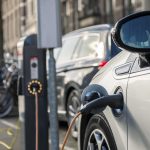Buying and selling cars has drastically changed over the past decade. The worldwide pressure of going green has incentivized the auto industry to invest more heavily in electric vehicle (EV) manufacturing. With some manufacturers moving to all EV production, and some EV makers taking a new approach to selling their vehicles, traditional car dealerships are facing new challenges.
Which Manufacturers Are Going Green?A handful of vehicle manufacturers have made it a goal to change production to only Electric Vehicles within the next decade or two. General Motors is one of them. They plan to be all EV by the year 2035. Volvo also made the commitment to go fully green by 2030. Other companies, like Ford, do not expect to be rid of gas-powered vehicles in their lines until 2040. These industry changes don’t just affect vehicle manufacturers. Companies like FedEx and Uber are also having internal discussions about how quickly to adopt EV technology and
In 2016, hybrid (HEV) and electric vehicles (EV) accounted for just one percent of all the vehicles sold worldwide. The industry estimates that by 2025 about 30 percent of all vehicles sold will be EVs and HEVs. Global sales for electric vehicles were up to 3.27 million as of 2019, and are expected to reach about 27 million by 2030.
The rapid growth of electric and hybrid vehicle popularity is considered by many in the industry to be a cataclysmic shift in the auto market. Government incentives, pollution regulations and the affordability of electricity as a fuel source are driving rapid EV adoption.
Auto Makers Committing to EV and HEVIn January 2021, General Motors made history by being the first major U.S. manufacturer to make a total commitment to EV. Their goal is to eliminate gasoline and diesel car, van and SUV production by 2035. GM also wants to be a carbon neutral company



